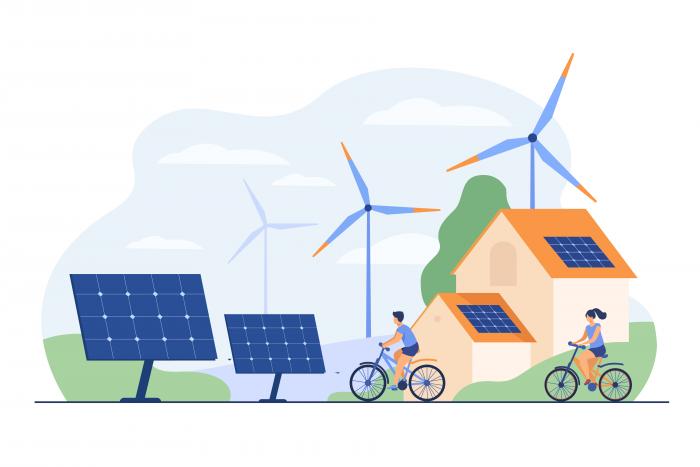
Representatives of the procuRE project, Georg Vogt and Nadia Koval, took part in the Smart Cities Marketplace Forum to introduce the novel Pre-Commercial Procurement (PCP) process. Though unfamiliar to many, this procurement process is advantageous for fostering the development of innovative technologies under real-world conditions. As Action Cluster Business Model Finance, procuRE are actively sharing this knowledge, not simply by sharing texts, but by inviting partners to participate during the course of the project and allowing them to influence the project parameters.
A recording of the event can be viewed here: Action Cluster 1 - Business Models & Finance meeting
Another event for public procurers will be held on the 13th of July at 2 pm CET. As procuRE is committed to sharing knowledge, preferred partners will have first access to results and even receive coverage of costs (pending on availability) relating to visiting open pilot days at the end of the project to see the solutions first-hand.
The strength of a Pre-Commercial Procurement is that it allows the demand side to define a problem which the market is currently not addressing fully. In the case of procuRE, this problem is the lack of replicable packages for the deep energy retrofit of existing public buildings. In procuRE, six cities have identified this weakness and have come together to fund a solution, with the aim of reaching 100 % renewable energy produced on-site.
PCPs typically consists of several stages where the public procurers buy R&D technologies from various competing suppliers. The number of suppliers is then reduced after each phase, leaving only the top candidates remaining to validate their solutions. Procurers can compare alternative approaches and filter out solutions that do not meet the public sector needs. For procuRE, this means that the successful suppliers after phase three will get the chance to equip the pilot sites and test their packages in the real world. PCPs often benefit SMEs as suppliers receive funding to develop their ideas but retain their intellectual property rights. In return for funding, suppliers also receive some usage rights and the first chance to buy the then tested technology.
The urgent need to accelerate renovation is being driven by the transition to carbon neutrality, but the irregularity of renewable energy production is still a major factor to be overcome. By producing energy on-site, public buildings would reduce the overall grid load and protect against power outages. Creating a replicable and complete package would also mean that the solutions can quickly be replicated across all buildings belonging to a procurer, speeding up the renovation wave.
However, this issue is not just specific to these six cities but is a worldwide goal thanks to the Paris Climate Agreement. Other procurers are invited to take part in the procuRE project as a Preferred Partner cost-free. As procuRE is still in the early stages of searching for suppliers, this allows participants to actively contribute their own ideas and influence the tender, as well as financially benefitting from the project. Preferred Partners will have first access to results and to any procurement opportunities following the successful completion of the project. So far, Frankfurt, Antalya, Izmit, Logroño, and Ardahan have all joined the city as preferred partners. The project is strengthened by each reference to a new preferred partner city.
Interested cities can find out more and register for events here: https://procure-pcp.eu/events/preferred-partner-forum/
